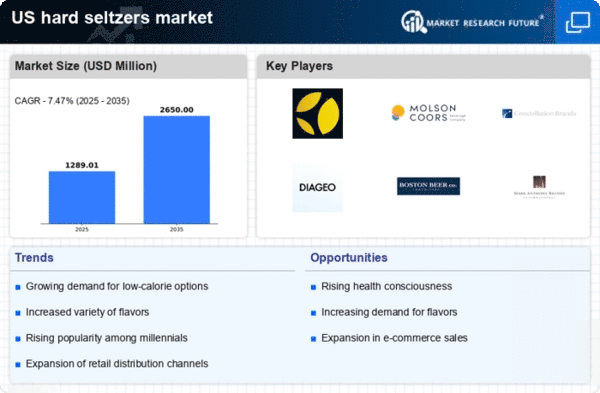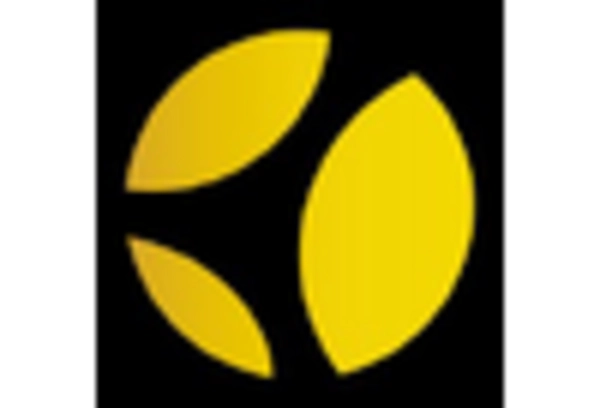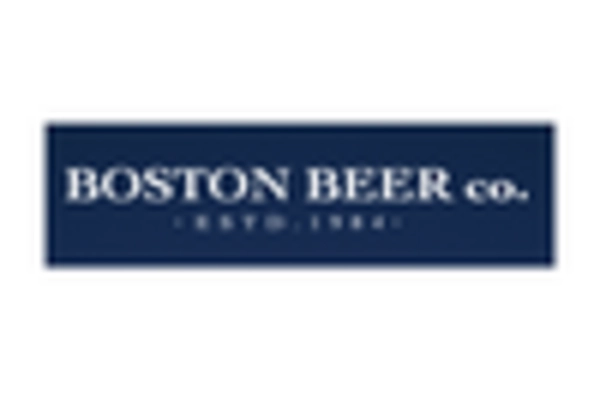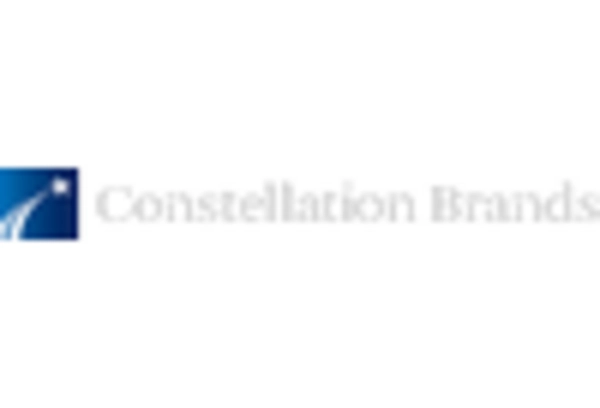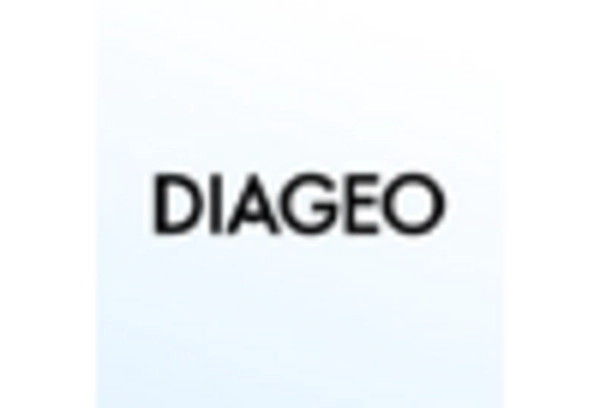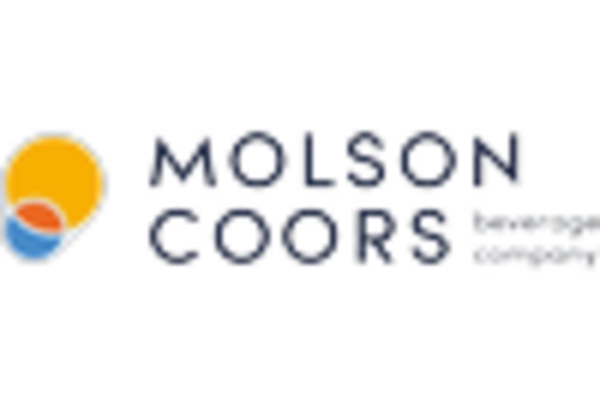Consumer Preference for Variety
The hard seltzers market is characterized by a consumer preference for variety, which drives brands to innovate and expand their flavor offerings. As consumers seek unique and diverse taste experiences, brands are responding by introducing an array of flavors, from traditional fruit options to more exotic combinations. This trend is supported by market data indicating that flavored hard seltzers have seen a sales increase of over 25% in the past year alone. The ability to cater to diverse palates not only attracts new customers but also encourages repeat purchases, as consumers are likely to explore different flavors. Consequently, the hard seltzers market is positioned to thrive as brands continue to innovate and diversify their product lines to meet evolving consumer tastes.
Innovative Marketing Strategies
The hard seltzers market benefits from innovative marketing strategies that resonate with diverse consumer segments. Brands are increasingly leveraging social media platforms and influencer partnerships to engage younger audiences, effectively creating a buzz around their products. This approach appears to be effective, as data shows that brands utilizing social media marketing have seen sales growth of up to 30% in certain demographics. Additionally, experiential marketing events, such as festivals and tastings, allow consumers to sample products firsthand, fostering brand loyalty and awareness. As competition intensifies, the ability to implement creative marketing tactics may prove crucial for brands aiming to establish a strong foothold in the hard seltzers market. This dynamic environment encourages continuous adaptation and evolution of marketing strategies to meet consumer preferences.
Expansion of Distribution Channels
The hard seltzers market is witnessing an expansion of distribution channels, which plays a pivotal role in enhancing product accessibility. Retailers are increasingly recognizing the demand for hard seltzers and are allocating more shelf space to these beverages. Data suggests that hard seltzers now account for approximately 10% of the total alcoholic beverage market in retail settings. Furthermore, the rise of e-commerce platforms has facilitated direct-to-consumer sales, allowing brands to reach a broader audience. This trend indicates that the hard seltzers market is not only growing in popularity but also becoming more accessible to consumers across various demographics. As distribution channels continue to diversify, brands may find new opportunities for growth and increased market penetration.
Rising Demand for Low-Calorie Beverages
The hard seltzers market experiences a notable increase in demand for low-calorie beverages, driven by a growing health-conscious consumer base. As individuals become more aware of their dietary choices, the appeal of hard seltzers, which typically contain fewer calories than traditional alcoholic beverages, becomes more pronounced. Recent data indicates that hard seltzers can contain as little as 100 calories per serving, making them an attractive option for those seeking to enjoy alcoholic drinks without excessive caloric intake. This trend aligns with the broader movement towards healthier lifestyles, suggesting that the hard seltzers market is well-positioned to capitalize on this shift. Furthermore, the market's ability to cater to this demand may lead to increased sales and market share, as consumers increasingly prioritize health and wellness in their beverage choices.
Sustainability and Eco-Friendly Practices
The hard seltzers market is increasingly influenced by sustainability and eco-friendly practices, as consumers become more environmentally conscious. Brands are adopting sustainable sourcing methods and eco-friendly packaging to appeal to this growing demographic. Recent surveys indicate that approximately 60% of consumers are willing to pay a premium for products that are environmentally friendly. This shift suggests that the hard seltzers market could benefit from integrating sustainable practices into their operations, potentially enhancing brand loyalty and attracting new customers. As the demand for eco-conscious products rises, brands that prioritize sustainability may find themselves at a competitive advantage, positioning themselves favorably within the hard seltzers market.


